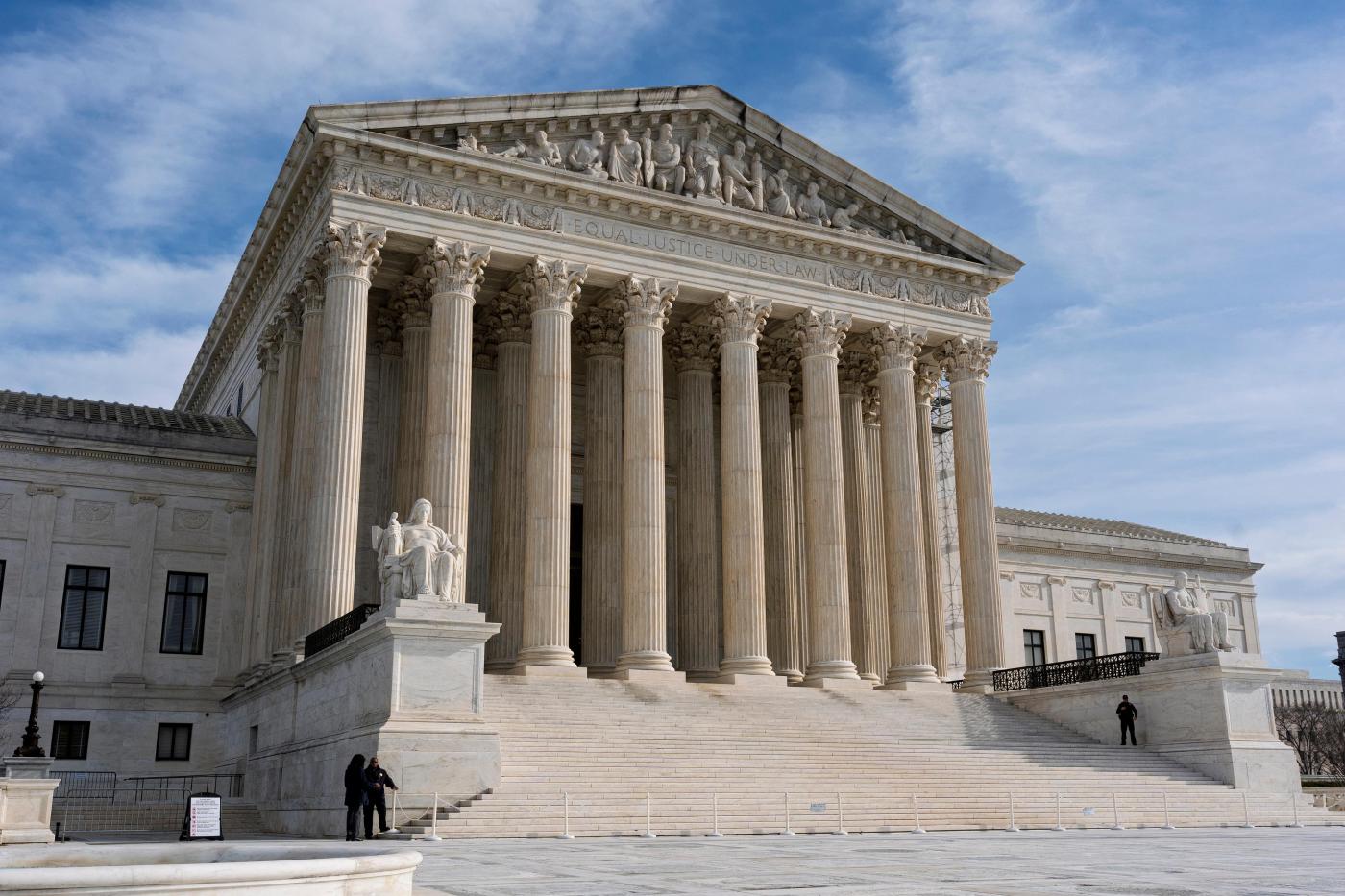
When the Trump administration presents oral arguments to the Supreme Court on Thursday in an attempt to clear the way for the president’s efforts to end birthright citizenship, they’ll be up against a new foe in the dispute: Alameda County.
The Alameda County Board of Supervisors unanimously voted this month to provide amicus briefs in four lawsuits against Trump’s executive orders restricting birthright citizenship and ending protections for some refugees. The decision — which is technically a ruling on whether lower-court judges can issue what are called “universal injunctions” to block such executive orders — could affect hundreds of thousands of immigrants, refugees and other citizens living in the Bay Area.
Related Articles
Lopez: Trump’s immigration reforms are reshaping the meaning of being American
Federal grand jury indicts Wisconsin judge in immigration case, allowing charges to continue
Budget airline begins deportation flights for ICE with start of Arizona operations
Baja California governor responds to Trump administration revoking her U.S. visa: ‘I am calm’
Trump just brought a group of white South Africans to the US as refugees. What are they escaping?
“President Trump’s Citizenship Stripping Order clearly violates the Fourteenth Amendment and threatens to unleash turmoil in amici’s communities, injuring countless children and families,” the amicus brief of local governments’ conclusion states. The brief includes 107 localities in 24 states, and comes amid a flood of similar amici briefs by nonprofits, history professors and attorneys general.
President Trump signed 26 executive orders when he returned to office on Jan. 20, which sought to restrict who is considered a citizen of the United States and streamline the deportation process for non-citizens. The primary executive order at issue, titled “Protecting the Meaning and Value of American Citizenship,” directed federal agencies not to treat a person born on U.S. soil as a citizen if their father was not a U.S. citizen or a lawful permanent resident, or if their mother was illegally or temporarily living in the U.S. This order challenges the Citizenship Clause of the 14th Amendment providing citizenship to those born in the United States.
The Trump administration’s court filings take issue with the clause that children born in the U.S. are “subject to the jurisdiction” of the country because neither parent has a sufficient relationship with the United States. Without a parental relationship to the U.S., those children do not have an “allegiance” to the country and are therefore not entitled to protection under its laws, according to the administration’s court filing.
“Such children lack the reciprocal relationship of allegiance and protection that would bring them under the political jurisdiction of the United States,” the Trump administration’s court filing states.
Alameda County’s joint amicus brief refutes this argument, stating the order “plainly violates the Fourteenth Amendment” of the Constitution, which dates back to its ratification in 1868. The 14th Amendment states that “all persons born or naturalized, and subject to the jurisdiction thereof, are citizens of the United States” and are guaranteed equal protection under the law, such as due process for all persons residing in the U.S.
“(T)he Order creates the dire immediate possibility that a child born to lawfully present parents would be at risk of deportation,” the amicus brief filed on behalf of local governments states. “The resulting family separation would inevitably wreak untold havoc on families and communities.”
The United States Court of Appeals for the Fourth Circuit issued a nationwide injunction against the president’s executive order on Feb. 5. The Trump administration, however, asked the Supreme Court on March 13 to rule on the issue of birthright citizenship to affirm the executive order – taking the unusual step of hearing legal arguments in May instead of hearing the case during the regular session between October and April.
In addition, Alameda County has filed an amicus brief against the Trump Administration’s Secretary of the Department of Homeland Security, Kristi Noem, whose department is seeking to curtail many immigration and refugee programs. Congress grants the President broad powers to respond to migration challenges, but Alameda County and the dozens of other groups say the dismantling of immigration programs is a radical expansion of that power.
The Bay Area focus of this immigration case is Aleksandra Doe, a resident of San Jose, California, with her husband and 5-year-old son. Aleksandra and her son fled Ukraine during the Russian invasion in 2022 amid the sound of missiles flying over their heads and widespread blackouts that led to freezing temperatures. Doe and her son applied through the “United for Ukraine” refugee process that was created in April 2022 to provide 2-year refuge for Ukrainians fleeing the effects of war.
Noem’s DHS suspended the program on Jan. 24 of this year, preventing new sponsor applications for Ukrainians and ending Ukrainian beneficiaries in the United States from renewing their travel authorizations. She and her son have pending Temporary Protected Status applications which she filed in December.
“Each of these individuals waited – even amid active war and persecution – to enter the United States until they had a legal avenue to enter the country,” the Feb. 28 court case against Noem’s DHS states. “And each of these individuals has now been cut off from the immigration relief Congress made available to them.”